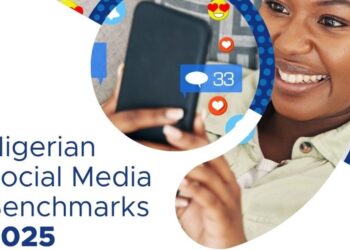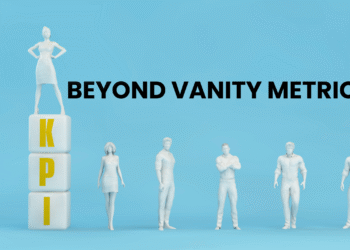The metaverse represents the next frontier of digital marketing, promising immersive brand experiences that transcend traditional boundaries. As global brands invest billions in virtual worlds, a critical question arises: Is Africa well-positioned to capitalise on metaverse marketing opportunities, or do fundamental challenges hinder the continent’s readiness?
Recent projections reveal a promising future for the Metaverse in Africa. With an expected annual growth rate of over 40%, the Metaverse market is projected to reach US$8.5 billion by 2030, up from US$1.6 billion in 2025. While the United States is set to lead globally with a projected market volume of US$32.1 billion in 2025, Nigeria and other African nations are steadily carving out their space in this evolving digital economy.
In Nigeria, the growth is particularly evident in virtual reality gaming, with a rising number of users embracing immersive experiences. By 2030, the global Metaverse user base is expected to hit 120.1 million, with Africa contributing to this surge through increasing adoption rates and digital innovation. The projected user penetration in the Metaverse market is set to rise from 8.7% in 2025 to 19.8% by 2030, while the average revenue per user (ARPU) is forecasted to be US$32.6, highlighting strong monetisation potential, including in Nigeria’s expanding digital landscape. Yet beneath these promising numbers lies a complex landscape of opportunities and obstacles that marketing professionals must navigate carefully.
The Current Landscape: Early Signals of Promise
Corporate Africa is already making strategic moves into virtual spaces. Major players like MTN and Nedbank have purchased digital land on African metaverse platforms, signalling early confidence in the technology’s commercial potential. This corporate investment represents more than speculative positioning; it demonstrates a belief that African consumers will eventually embrace metaverse experiences at scale.
The virtual commerce ecosystem is beginning to flourish across the continent. Entrepreneurs are establishing virtual marketplaces where users can buy, sell, and trade digital and physical goods, creating new revenue streams and business models.
Perhaps most significantly, African creators and brands are discovering the metaverse’s potential for cultural storytelling and global reach. The platform offers unprecedented opportunities for African brands to share authentic narratives, export cultural experiences, and create immersive content that resonates with local and international audiences.
The Infrastructure Challenge: Africa’s Digital Divide
Despite promising market projections, Africa faces substantial infrastructure hurdles that complicate metaverse adoption. The continent currently experiences the world’s slowest internet speeds while maintaining the highest mobile internet costs globally. This creates a fundamental accessibility barrier for technologies that demand high-bandwidth, low-latency connections.
The digital infrastructure gaps run deeper than connectivity alone. Sub-Saharan Africa confronts an underdeveloped digital infrastructure, limited affordable connectivity, a persistent digital gender gap, insufficient skills for digitally enabled industries, and inadequate regulatory frameworks. These interconnected challenges create a complex web of barriers that must be addressed systematically.
Three critical bottlenecks emerge as primary obstacles: the infrastructure supporting metaverse technologies, the adoption of industry standards and protocols, and the user onboarding experience. Each represents a significant hurdle for African nations attempting to integrate into the global metaverse ecosystem.
Hardware accessibility presents another fundamental challenge. A significant portion of Africa’s population lacks smartphone ownership, which represents the most accessible entry point for metaverse experiences. Without widespread device penetration, marketing campaigns targeting metaverse platforms risk excluding substantial consumer segments.
Unique Opportunities for African Marketers
Despite infrastructure challenges, Africa possesses distinct advantages that could accelerate metaverse marketing adoption. The continent’s rich cultural heritage offers unparalleled storytelling opportunities within virtual environments. African brands can leverage the metaverse to create authentic cultural experiences that differentiate them in increasingly crowded global markets.
The mobile-first approach that characterises African digital adoption could prove advantageous in metaverse development. Rather than requiring expensive VR headsets, mobile-optimised metaverse experiences align with existing consumer behaviour patterns and device ownership rates. This pathway could enable African brands to reach audiences through familiar interfaces while gradually introducing more sophisticated virtual experiences.
Broadcasting and social impact initiatives are emerging as powerful metaverse applications across Africa. Digital platforms are expanding African voices, improving social consciousness, and addressing societal issues through immersive storytelling. Marketing professionals can tap into this trend by creating purpose-driven campaigns that combine commercial objectives with social impact.
Strategic Recommendations for African Marketers
Start with Mobile-First Experiences: Given Africa’s mobile-centric digital landscape, marketers should prioritise metaverse campaigns optimised for smartphones and tablets rather than high-end VR equipment. This approach maximises reach while building consumer familiarity with virtual environments.
Invest in Cultural Storytelling: African brands possess unique cultural narratives that can create compelling metaverse experiences. Investing in authentic storytelling capabilities now positions brands advantageously as the technology matures and audiences grow.
Partner with Infrastructure Providers: Collaborating with telecommunications companies, internet service providers, and technology platforms can help brands understand infrastructure improvements and time
Focus on Education and Awareness: Many African consumers remain unfamiliar with metaverse concepts and benefits. Educational marketing campaigns that demonstrate practical value while building awareness can establish early market positioning.
Develop Hybrid Strategies: Successful African metaverse marketing will likely combine virtual experiences with physical touchpoints, leveraging the continent’s strong community-oriented culture while introducing digital innovations gradually.
Preparing for the Future
The question isn’t whether Africa will embrace metaverse marketing, but when and how this transformation will occur. Current infrastructure limitations create barriers, but they also represent opportunities for brands that position themselves strategically during this pre-adoption phase.
Marketing leaders should monitor infrastructure developments, particularly 4G/5G expansion and internet cost reductions, as indicators of market readiness. Early investments in capability building, content development, and strategic partnerships can provide competitive advantages as barriers diminish.
The metaverse represents both a challenge and an opportunity for African marketing professionals. Those who navigate infrastructure constraints while capitalising on cultural advantages will likely emerge as leaders in this evolving landscape.
As Africa’s digital infrastructure continues improving and consumer familiarity with virtual experiences grows, the continent’s metaverse marketing potential appears substantial. The key lies in strategic timing, culturally relevant content, and patient investment in emerging capabilities.
The metaverse may not be fully ready for Africa today, but Africa’s marketers can begin preparing for tomorrow’s virtual opportunities. Success will require balancing optimism about the technology’s potential with realism about current limitations, creating strategies that evolve alongside the continent’s digital transformation journey..
Stay ahead of the curve.
Subscribe to our newsletter for the latest insights on emerging marketing technologies, African digital trends, and practical strategies for navigating the continent’s evolving marketing ecosystem. Join thousands of marketing professionals who rely on Marketing Analytics Africa for cutting-edge industry intelligence.
Connect with us on LinkedIn to join the conversation about the future of marketing in Africa.




